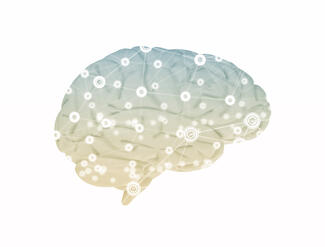Breaking the Cycle of Criminalization: Keynote Address Tackles Neuroethics, Justice Reform, and Patient Autonomy at Psych Congress 2025

Discussions of ethical intervention, patient autonomy, and justice reform took center stage during the keynote address at the 2025 Psych Congress on Wednesday evening. Entitled “Ending the Revolving Door: Decriminalizing Mental Health, Justice Reform, and the Ethics of Intervention,” the keynote explored a multidisciplinary approach to addressing the increasing prevalence of patients living with psychotic illness who experience homelessness and criminal legal involvement.
The session was presented by Stephen Stahl, MD, PhD, DSc (Hon.), University of California, Riverside School of Medicine, Riverside, CA, Katherine Warburton, DO, University of California, Davis, and Alberto Carrara, LC, Ateneo Pontificio Regina Apostolorum, Rome, Italy/Pontifical Academy for Life, Vatican City, founding members of the International College of Neuroscience and Neuroethics (ICONN), a nonprofit organization focused on advancing the ethical care of patients with schizophrenia through policy education.
“This might be the most incredible chance to reform the treatment of serious mental illness in the US in the last 70 years,” said Dr Stahl, who kicked off the address with an overview of the neurobiological understanding of schizophrenia and its treatment. As he described the complex, multidimensional syndrome, Dr Stahl directed the audience’s attention to the most severe cases of the disorder—those most likely to experience homelessness or incarceration. While individuals with schizophrenia make up 1% of the total population in the US, they comprise 20-30% of the unsheltered population, 15% of the state prison system population, and 24% of the jail population.
Dr Stahl underscored that treatment is effective for these patients in severe crisis—data shows that up to 90% of patients who were deemed incompetent to stand trial because of their schizophrenia regain competency post-treatment. “Your medications work,” he emphasized to clinicians.
Treatment adherence in these cases, however, can be complicated by anosognosia, a symptom of severe mental illness in which a patient lacks awareness of his own disease. This also muddies the ability for a patient to consent to treatment.
With anosognosia being a common symptom of schizophrenia, the presenters posited that early, involuntary treatment, including stabilization medications and wraparound behavioral health services, may be the solution to breaking the criminalization cycle for those living with severe presentations of the disorder.
To achieve this, however, would require a shift in legislation. The presenters pointed out that while countries like Italy have a guaranteed right to mental health care, the US has more stringent standards for involuntary intervention. Dr Warburton also walked the audience through the policy changes over the last century that, post-deinstitutionalization, have led to a higher rate of mentally ill patients being housed in jails and prisons than in hospitals. “We don’t have a dichotomous choice between locking people up in prisons and locking people up in institutions,” she urged. Using the California Community Assistance, Recovery, & Empowerment (CARE) Act as an example, Dr Warburton highlighted that increasing access to critical behavioral health services, housing, and support may be key in addressing the “cycle of criminalization that is incumbent upon us, in our profession, to disrupt.”
Reverend Professor Alberto Carrara rounded out the discussion with support from a neuroethical lens, positing a multidimensional framework of consciousness that, in patients with schizophrenia, is severely impacted. Beyond impairments in perception and reasoning, the disorder disrupts “the person's capacity for coherent self-representation and deliberate freedom.” In Father Carrara’s perspective, a lack of intervention further restricts freedom from a patient in need, deeming it “ethically imperative to intervene.” Inaction, he argued, is “abandonment dressed up as autonomy.”
At the end of the session, the presenters shared their plans for ICONN to build a consensus document that will demand an international standard of care for the treatment of individuals living with a psychotic illness, with the goal of achieving a better outcomes and comprehensive, ethical care for this patient population.
For more information on ICONN, visit their website.
For more conference news and insights from Psych Congress 2025, visit the Psych Congress newsroom.



















